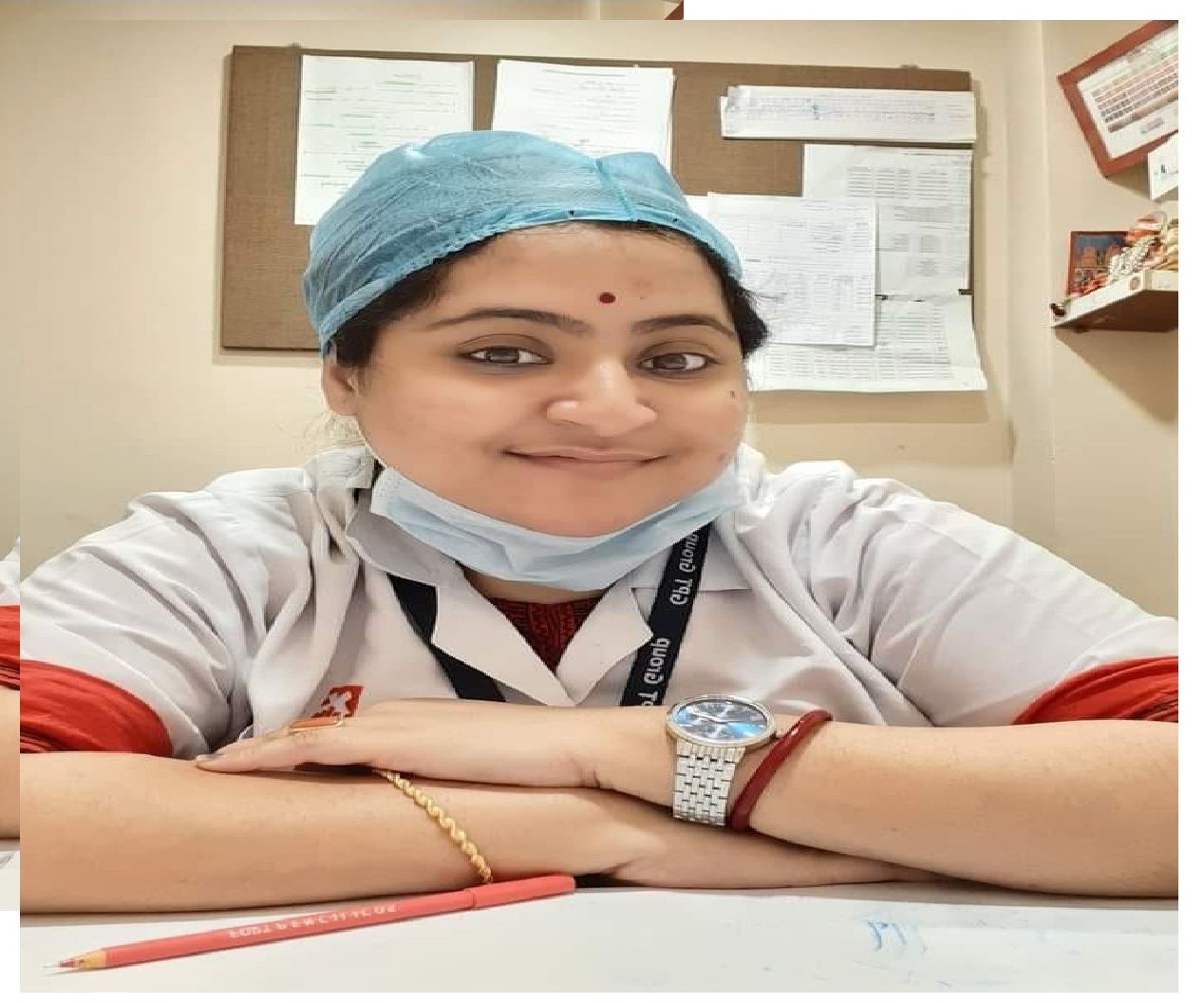Daily Caloric Intake: Everything You Need To Know!
Discover how to manage your daily caloric intake for optimal health and well-being. This guide explores the factors influencing calorie needs, the importance of nutrient density, and practical tips for maintaining a balanced diet.

Written by Dr Sonia Bhatt
Last updated on 3rd Jul, 2025
One of the fundamental elements of preserving a healthy lifestyle is maintaining a proper daily caloric intake. It refers to the amount of calories a person consumes on a daily basis, which is crucial for imparting the energy required for physical functions, bodily functions, and overall well-being.
Monitoring caloric consumption is crucial for achieving and retaining energy stability, supporting weight control, and preventing health issues linked to overconsumption or undernutrition. People can make informed nutritional picks by obtaining information about the body’s precise energy wishes based on age, interest, and metabolism.
Understanding Calories
Calories are energy values that the body derives from food, sustaining major functions such as respiration, metabolism, blood circulation, etc. In this regard:
- 60–70 per cent of caloric intake goes into basic physiological processes like breathing and blood circulation.
About 20 percent is used during exercise. - Roughly 10 percent is used by the organs responsible for digestion.
Knowing how your body spends energy is critical to maintaining energy balance and health.
Factors Influencing Daily Caloric Needs
Daily caloric needs aren't uniform and are influenced by diverse factors, so it's important to consider these variables when developing weight management plans:
Age and Gender
Caloric needs vary substantially depending on age and gender. Younger individuals usually need more calories for their developing bodies. Meanwhile, older adults often require less energy due to decreased metabolic rates.
Additionally, men generally have higher calorie requirements compared to women due to their higher muscle mass and increased metabolic rates.
Activity Level
Physical activity is the number one determinant of a person's calorie needs. Athletes or individuals involved in strenuous activities have high-calorie requirements to maintain optimum energy levels.
In contrast, people who are not so active have lower calorie requirements as they need less energy to keep functioning.
Metabolic Rate
The basal metabolic rate (BMR) refers to an organism's ability to maintain physiological functions such as respiration, blood circulation, brain functioning, etc. This rate varies among people due to variations in muscle tissue, age, bone structure, genetic inheritance, and hormone regulation.
Accordingly, based on the metabolic rate, an individual’s caloric requirements tend to differ.
Recommended Daily Caloric Intake
The recommended daily caloric intake will tend to differ across individuals:
- For adults, the average daily calorie intake is approximately 1,600 for women and 2,000 for men. However, these values vary considerably depending on lifestyle and activity levels.
- Active individuals, those with manual occupations, or people who exercise regularly may require more calories than the average recommendation.
- Athletes have very high calorific requirements to fuel the body for heavy training and recovery. Also, these needs vary depending on the intensity, nature, and duration of the sport.
- In general, ageing causes a deceleration in metabolism, resulting in less caloric intake. Although older adults may require fewer calories, providing nutrient-dense food choices that prevent weight gain or nutritional deficiencies remains essential.
- Changes in calorie intake and dietary planning must support health and optimum energy levels. This includes having balanced meals with sufficient vitamins and minerals.
Nutrient Density vs. Caloric Density
The differences between nutrient density and caloric density are explained below:
Tools for Monitoring Caloric Intake
To monitor caloric intake, one can use the following tools:
Calorie-counting Apps and Gadgets
These gear are beneficial for tracking daily caloric intake, allowing individuals to monitor their food consumption and stay aligned with their fitness goals.
Consulting Dieticians
Visiting a dietician gives a more personalised approach to dealing with caloric consumption. They offer tailor-made nutritional plans based on a person’s unique needs, helping them to understand their calorific requirements and choose nutrient-rich meals.
Potential Challenges in Managing Caloric Intake
Some of the major issues which individuals face while maintaining caloric intake are:
- Emotional and mental obstacles, including emotional ingesting, can complicate the management of caloric intake.
- Stress and increased tension may additionally cause individuals to overeat, making it tough to maintain a balanced diet. Staying vigilant about these emotional triggers is key to developing healthier eating behaviour.
- Social gatherings and cultural celebrations may encourage overeating. Thus, individuals need to be selective about what they eat in order to maintain their caloric intake.
Caloric Intake: Addressing Overconsumption and Undernutrition
Excessive caloric intake can lead to obesity and increasing risk of health issues like diabetes, heart disease, and high blood pressure. Maintaining a balance between calorie intake and physical activity is key to avoiding such problems.
Alternatively, undernutrition arises from inadequate caloric intake or poor meal selections. This can cause signs like fatigue, weight reduction, and weakened immunity. Recognising these symptoms early and addressing dietary deficiencies through a balanced diet plan is vital to ensure overall health and safeguard oneself from long-term complications from undernutrition.
Practical Tips for Healthy Caloric Consumption
Following are some practical tips to maintain healthy caloric consumption:
- Diet Tips: Plan a balanced diet consisting of lean protein, green leafy vegetables and legumes. Choose nutrient-rich foods and avoid impulsive eating.
- Decoding Nutritional Labels: Understanding food labels allows for informed meal decision-making. To choose better alternatives, you must note not only the calories but also the nutrient density.
- Keep a Food Diary or App: Use a food diary or an application to count calories. Both help monitor your food intake and stay aware of the total calories you consume.
- Portion Control: Use small plates or measures to modify portions and prevent overeating.
Conclusion
Balancing daily calorie intake for health and well-being is crucial. Being informed of the body's caloric requirements can help one choose nutrient-dense items that not only provide energy but also contribute to overall health.
Furthermore, avoiding overconsumption or underconsumption is a must to keep potential health issues at bay. Also, having a balanced diet, controlling meal portions and reading nutrition labels before eating can be highly beneficial in maintaining a healthy daily caloric intake.
Consult Top Dietician
Consult Top Dietician

Ms. Shruthi Bhargavi
Dietician
9 Years • Msc (Nutrition and Dietetics)
Hyderabad
Apollo 24|7 Clinic - Telangana, Hyderabad
Ms Malabika Datta
Dietician
19 Years • Bsc (Clinical Nutrition & Dietetics), Msc (Dietetics & Food Service Management)
Kolkata
Malabika’s Diet Clinic, Kolkata
Ms Chetu Singhi
Dietician
20 Years • MSC Dietetics & Nutrition
Kolkata
RB Diagnostic - Dietician Diet2fit Chetu Singhi, Kolkata

Ms. Poushali Ghosh
Dietician
9 Years • Msc in Applied Nutrition
Barasat
Diab-Eat-Ease, Barasat

Ms. Shereen Begum
Dietician
8 Years • BSC Food Science & Management, Msc (Nutrition & Dietetics)
Hyderabad
Dr Shereen clinic, Hyderabad
